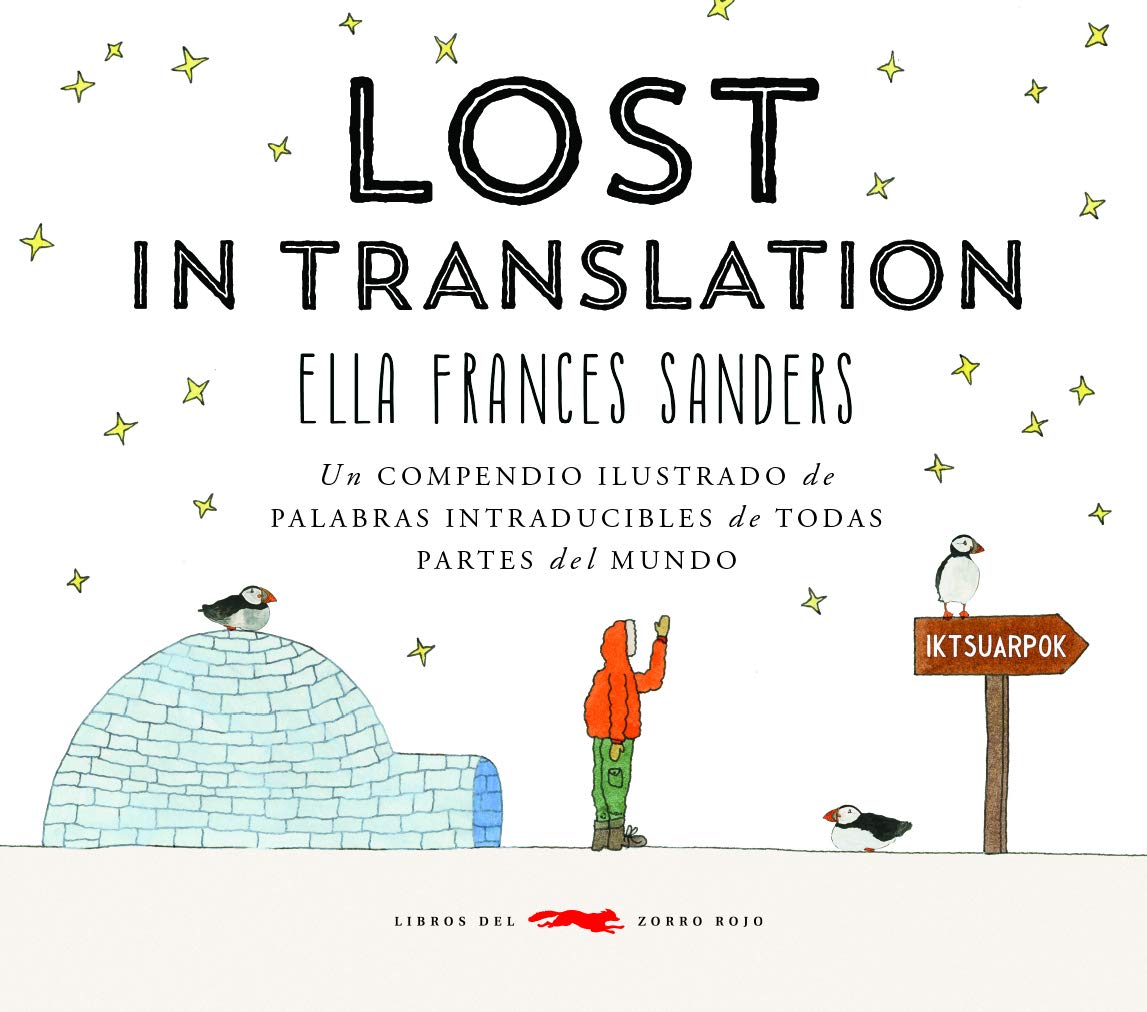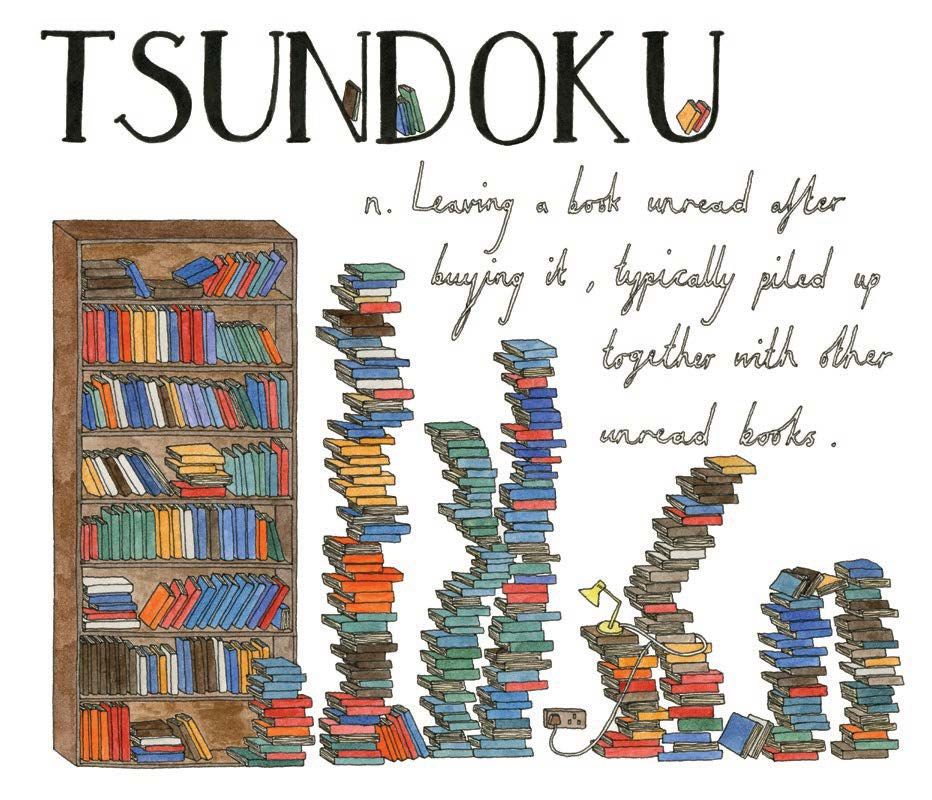Did I Accidentally Build an Antilibrary?
Last Christmas, I was gifted a nice little book about words that are untranslatable to other languages, aptly titled, Lost in translation—yes, the same title as the film from Sofia Coppola. Now this is very related to sociolinguistics, a subject that I find deeply interesting since I embarked on my Mandarin Chinese learning journey. I got a copy of the Spanish version.

This is an illustrated book, with each word given a two-page spread. These words, or lexical gaps, embody concepts or ideas that despite termed in only one language, to my way of thinking and with a few exceptions, are universal. But really what this little book captures is more than mere curiosity; I find it rewarding to finally label complicated emotions or experiences I am sure most people can relate to.
For instance, the Yiddish word trepverter means “a witty comeback you think of only when it is too late to use”—I personally can vividly remember a few too many times of trepverter pain.
Or the more romantic Arabic term ya’aburnee (يقبرني) means literally “You bury me” a declaration of a person’s hope that they’ll die before another person because living without them would be unbearable.
The book has also an entry for the ostrich effect, a cognitive bias where one ignores potentially negative but useful information, e.g. put off undergoing a screening test or checking your account balance when you are overspending—like if ignorance would save you. Turns out the Dutch have a word for it, struisvogelpolitiek. The word comes from the legend that ostriches bury their heads in the sand to avoid danger.
Now that cold plunges are trending, this word seems relevant: warmduscher, literally German for a “warm showerer”, i.e. a wimp.
There are a few Japanense words in here too: komorebi, which describes the subtle yet beautiful phenomenon of sunlight leaking through the trees and foliage, and the word which got me started with this blog post: tsundoku.

Tsundoku means piling up books you haven’t read yet. I happen to be an expert at tsundoku. I buy books almost every month, and keep track of those that I want to read (acquired or not) on my goodreads shelves.
The concept of tsundoku largely overlaps with antilibrary, a term coined by Umberto Eco and used by Nassim Nicholas Taleb in his book The Black Swan:
The writer Umberto Eco belongs to that small class of scholars who are encyclopedic, insightful, and nondull. He is the owner of a large personal library (containing thirty thousand books), and separates visitors into two categories: those who react with “Wow! Signore, professore dottore Eco, what a library you have ! How many of these books have you read?” and the others - a very small minority - who get the point that a private library is not an ego-boosting appendage but a research tool. Read books are far less valuable than unread ones. The library should contain as much of what you don’t know as your financial means, mortgage rates and the currently tight real-estate market allows you to put there. You will accumulate more knowledge and more books as you grow older, and the growing number of unread books on the shelves will look at you menancingly. Indeed, the more you know, the larger the rows of unread books. Let us call this collection of unread books an antilibrary.